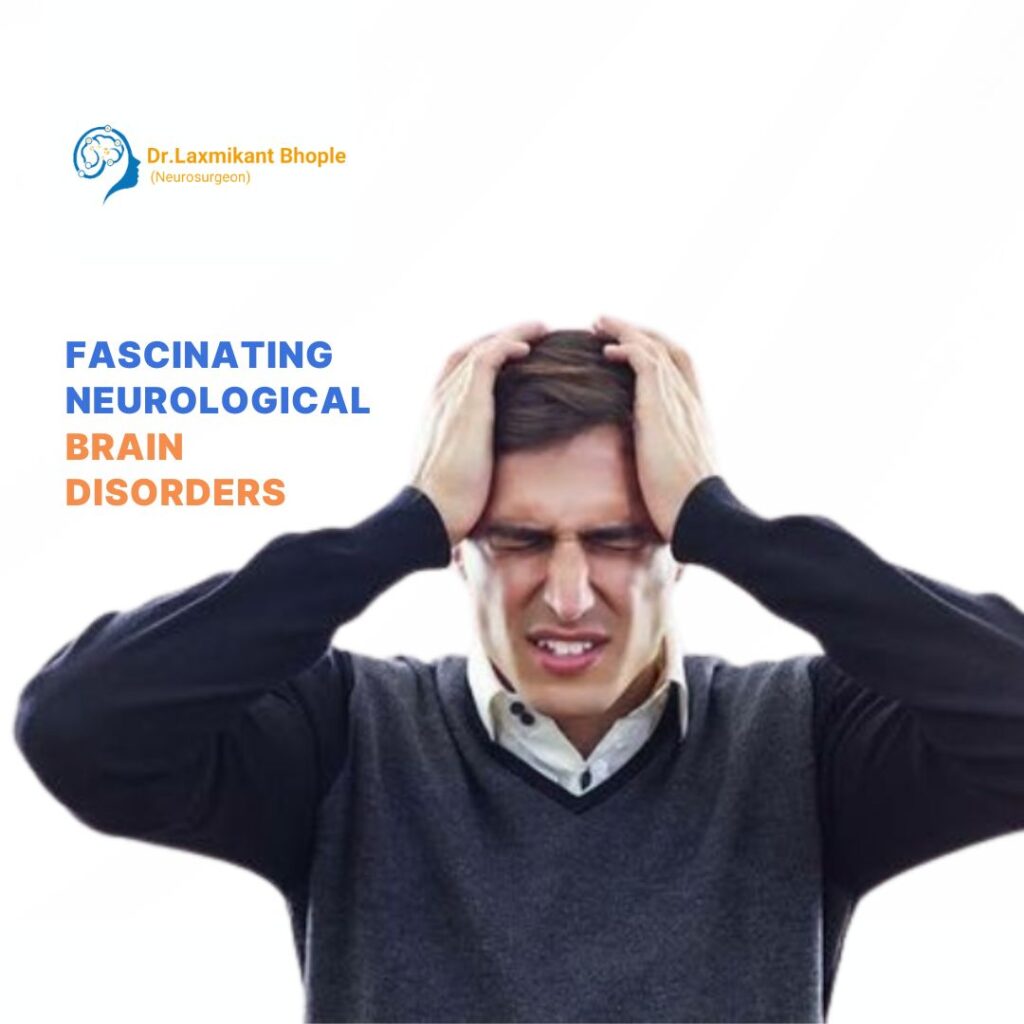The human brain is one of the most complex organs in the body, responsible for controlling thoughts, emotions, and bodily functions. However, when neurological disorders arise, they can significantly impact an individual’s quality of life. From common conditions like migraines to complex diseases such as Alzheimer’s and Parkinson’s, understanding these disorders can help in early diagnosis and effective management. Consulting a neurologist in Nanded is crucial for those experiencing symptoms of neurological disorders. In this blog, we explore some fascinating neurological brain disorders, their causes, symptoms, and treatment options.
1. Alzheimer’s Disease
Alzheimer’s disease is a progressive neurological disorder that affects memory, thinking, and behavior. It is one of the most common causes of dementia.
Causes:
- Abnormal protein deposits in the brain (amyloid plaques and tau tangles)
- Genetic factors
- Aging and lifestyle factors
Symptoms:
- Memory loss affecting daily life
- Confusion and disorientation
- Difficulty in problem-solving and decision-making
- Changes in mood and personality
Treatment:
While there is no cure for Alzheimer’s, treatment focuses on slowing disease progression and managing symptoms. Medications such as cholinesterase inhibitors can help, along with cognitive therapy and lifestyle changes.
2. Parkinson’s Disease
Parkinson’s disease is a neurodegenerative disorder that affects movement due to dopamine-producing neuron loss in the brain.
Causes:
- Genetic predisposition
- Environmental toxins
- Age-related brain changes
Symptoms:
- Tremors and shaking hands
- Slowed movement (bradykinesia)
- Muscle rigidity
- Impaired balance and coordination
Treatment:
A neurologist in Nanded may prescribe medications like Levodopa to manage symptoms. Physical therapy and deep brain stimulation (DBS) are also effective treatments.
3. Epilepsy
Epilepsy is a neurological disorder characterized by recurrent seizures caused by abnormal brain activity.
Causes:
- Brain injury or trauma
- Genetic factors
- Stroke or infections
Symptoms:
- Repeated seizures
- Loss of consciousness
- Uncontrolled muscle movements
- Sensory disturbances
Treatment:
Anti-epileptic drugs (AEDs) are commonly prescribed to control seizures. In severe cases, surgery or vagus nerve stimulation (VNS) may be recommended.
4. Multiple Sclerosis (MS)
Multiple sclerosis is an autoimmune disorder where the immune system attacks the protective covering of nerve fibers (myelin), leading to communication issues between the brain and body.
Causes:
- Genetic factors
- Viral infections
- Environmental triggers
Symptoms:
- Muscle weakness and coordination problems
- Vision impairment
- Fatigue and cognitive difficulties
- Numbness or tingling sensations
Treatment:
There is no cure for MS, but disease-modifying therapies (DMTs), physical therapy, and lifestyle modifications can help manage symptoms effectively.
5. Migraine
Migraines are severe headaches often accompanied by nausea, sensitivity to light, and visual disturbances.
Causes:
- Hormonal changes
- Stress and lack of sleep
- Dietary triggers like caffeine and alcohol
Symptoms:
- Throbbing headache, usually on one side of the head
- Nausea and vomiting
- Sensitivity to light and sound
- Aura (flashes of light or blind spots)
Treatment:
Medications, lifestyle modifications, and avoiding triggers can help prevent and manage migraines. A neurologist in Nanded may also suggest therapies like Botox injections for chronic migraines.
6. Stroke
A stroke occurs when blood supply to the brain is disrupted, leading to brain cell damage.
Causes:
- Blood clots (ischemic stroke)
- Burst blood vessels (hemorrhagic stroke)
- High blood pressure and cholesterol
Symptoms:
- Sudden weakness or numbness on one side of the body
- Slurred speech and confusion
- Vision problems
- Loss of coordination
Treatment:
Immediate medical intervention is crucial. Treatments include clot-busting drugs, surgery, and rehabilitation therapies like speech and physical therapy.
7. Huntington’s Disease
Huntington’s disease is a rare genetic disorder that causes the progressive breakdown of nerve cells in the brain.
Causes:
- Genetic mutation inherited from parents
Symptoms:
- Uncontrolled movements (chorea)
- Cognitive decline
- Mood swings and depression
- Difficulty in speech and swallowing
Treatment:
There is no cure, but medications can help manage symptoms. Genetic counseling is recommended for affected families.
8. Amyotrophic Lateral Sclerosis (ALS)
ALS is a progressive neurodegenerative disease that affects nerve cells controlling voluntary muscles.
Causes:
- Genetic mutations
- Environmental factors
Symptoms:
- Muscle weakness and atrophy
- Difficulty speaking and swallowing
- Loss of motor control
- Breathing difficulties
Treatment:
While there is no cure, medications like Riluzole and physical therapy can slow disease progression and improve quality of life.
Conclusion
Neurological brain disorders can be life-altering, but with early diagnosis and proper treatment, patients can lead better lives. If you or a loved one experience any neurological symptoms, consulting a neurologist in Nanded is essential for accurate diagnosis and personalized care. Understanding these fascinating disorders can help raise awareness and encourage timely medical intervention. Fascinating Neurological Brain Disorders affect cognitive function, and overall health, ranging from migraines to complex conditions .

